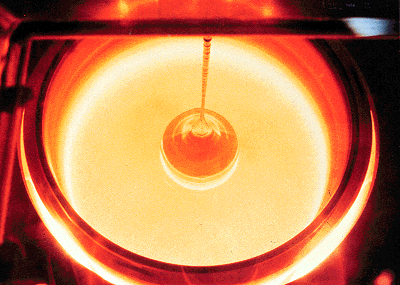What is a CPU? What is a Processor made up of (IN Simple Words) ?
Well dear readers today we will take a look at what a processor is made up of and different components it contains and also we will decipher this technical mambo jumbo for you.
This figure illustrates the innards of a typical generic processor or CPU as well all know. The thin wires are visible and connected to this main sort of a chip die. The center rectangle is the main heart of our processor. The basic building block of any processor are transistors. Billions and Quadrillions of them.
How do we create processors?
We take a raw silicone and then melt it to form an ingot.
Afterwards we spin this ingot to form a wafer which is thoroughly tested with lasers for its the precision in its surface.
The wafer is cut in to smaller cubes for each processor.
After a bit of etching and cleaning the wafer is ready.
Its now ready to be installed in the processor die and then the wires are connected.
Its a very delicate process.
To know more about transistors check my other article here.
This figure illustrates the innards of a typical generic processor or CPU as well all know. The thin wires are visible and connected to this main sort of a chip die. The center rectangle is the main heart of our processor. The basic building block of any processor are transistors. Billions and Quadrillions of them.
Microprocessors
How do we create processors?
We take a raw silicone and then melt it to form an ingot.
Afterwards we spin this ingot to form a wafer which is thoroughly tested with lasers for its the precision in its surface.
The wafer is cut in to smaller cubes for each processor.
After a bit of etching and cleaning the wafer is ready.
Its now ready to be installed in the processor die and then the wires are connected.
Its a very delicate process.
To know more about transistors check my other article here.










Comments
Post a Comment